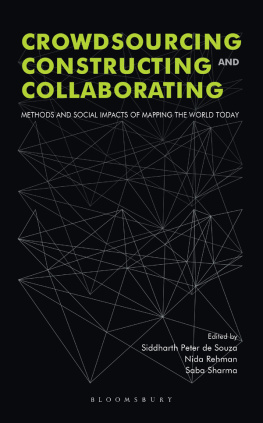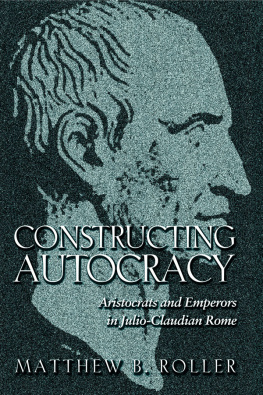First published 1999 by Ashgate Publishing
Reissued 2018 by Routledge
2 Park Square, Milton Park, Abingdon, Oxon OX14 4RN
711 Third Avenue, New York, NY 10017, USA
Routledge is an imprint of the Taylor & Francis Group, an informa business
Copyright Arja Jokinen, Kirsi Juhila and Tarja Ps 1999
All rights reserved. No part of this book may be reprinted or reproduced or utilised in any form or by any electronic, mechanical, or other means, now known or hereafter invented, including photocopying and recording, or in any information storage or retrieval system, without permission in writing from the publishers.
Notice:
Product or corporate names may be trademarks or registered trademarks, and are used only for identification and explanation without intent to infringe.
Publishers Note
The publisher has gone to great lengths to ensure the quality of this reprint but points out that some imperfections in the original copies may be apparent.
Disclaimer
The publisher has made every effort to trace copyright holders and welcomes correspondence from those they have been unable to contact.
A Library of Congress record exists under LC control number: 99072851
ISBN 13: 978-1-138-61134-4 (hbk)
ISBN 13: 978-0-429-46046-3 (ebk)
Arja Jokinen, Kirsi Juhila and Tarja Ps
Social work is defined by many and in many different contexts. Parallel to clients and social workers, research and science are central constructors of social work. Descriptions of social work are, however, constructed in many other contexts as well. At times, it is a popular topic in the media. Public policy defines tasks for it, formulates expectations of it and evaluates it as part of the local or national welfare agenda. In organisations providing social work education and in the development discussions and disputes related to education, social work and the qualifications of social workers are given varying contents. Employer and employee organisations are crucial definers as well, not to mention various client organisations and movements. We must also remember cultural differences. In different countries, in the contexts of different welfare states and welfare traditions, social work and its tasks are constructed in different ways. Moreover, the heterogeneity of culture inside individual countries brings local nuances into the spectrum of definitions.
Is social work, then, disappearing, becoming a jumble of fragmentary practices, as has been stated in certain discussions on the modern and the post-modern? According to some, there is no clear position or task for social work in the uncertainty of the post-modern world. Together with the modern welfare state, social work has entered a crisis. It can no longer justify its position by calling upon universal expert knowledge based on research. There exist many, even conflicting, knowledges and truths, all of which are exposed to criticism. Thus, social work is opened up for a multiplicity of interpretations. It may be defined in a great number of ways, both by people outside it and by people inside (Clarke, 1995; Howe, 1994; Parton, 1994 and 1995).
The present book, based on social constructionism, starts out from the claim that despite the multiple and fragmented definitions, social work can be observed, studied and analysed. The observation must be based on concrete practices of social work, which are defined as social work or which in some other way cause the existence of social work To increase the understanding of these multiple practices is the first goal of our book. In our study, we avoid a normative evaluation of social work practices, since we do not hold the key to defining good social work. Instead, we have at our disposal research tools for studying what happens in the social work practices, as the various case studies in the book will show. Whenever we are dealing with societal activity such as social work, the requirement often placed to research is its utility. Can research based on social constructionism be applied in social work, can it bring about change? The second goal of the book is to present answers to this question. Before moving on to these themes, however, we will describe the conversations leading to the genesis of this book, and particularly of this introductory chapter.
The Chain of Conversations as a Context
No scholarly text can be born in vacuo, nor can it be the end-point of any chain of events. In constructionist terms, research can be structured as consequent, parallel or overlapping conversations. The texts comment on other texts and integrate elements from them. In addition to texts, face-to-face meetings of researchers also constitute activity where research is constructed. Moreover, research practices especially in applied research such as social work interact with other societal conversations and often also with social work carried out in the field.
Every scholarly text contains several elements conversations or parts of conversations familiar from other contexts since new is always constructed in a communicative relationship to existing. In their new context, however, Old elements are no longer visible as clearly defined loci in the text, or as neat references. Rather, they may be understood as the resources for working the new text, only receiving their significance in the context of their presentation, and consequently the significance may differ considerably from that presented in other contexts. It is impossible to locate all conversational links in an individual text, yet in the following we will attempt to trace one series of conversations which was crucial for the genesis of the present text. We will study conversations as something which proceeds temporally and finds a spatial location. The function of this study is, on the one hand, to construct a historical context for the text to facilitate the readers orientation, and on the other hand, to illustrate the analytical basis of our method of work. Even though we are constructing a narrative on the basis of our own activity, it is as well to bear in mind that local research (in this case, research carried out at Tampere) is always intertwined with a wider debate, without which it could not exist.
In 1995 we edited a book in Finnish on the union of social work and constructionism. We justified the utility of a constructionist frame of reference emphasising the practices of social work as follows:
General definitions (of social work) often create difficulties for a researcher approaching social work from the direction of practices. They do not seem to pull together the endless multiplicity of social work practices, which appear to escape categorisations coming from the outside, whether they are interpretations produced inside the discipline or science, tasks defined by administration or legislation, societal function, professional ethics, or something even more general than these. When starting out from empirical work, you are likely to catch something else. In this case, it is difficult or even impossible to begin your research report by asking the question, What is social work?, but the question, How should we study social work?, becomes even more pressing. Thus, one possibility not unheard-of, but little applied in Finnish research of grasping social work is to emphasise the priority of empirical research (Jokinen, Juhila and Ps, 1995, p. 11).










